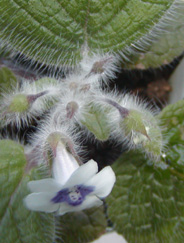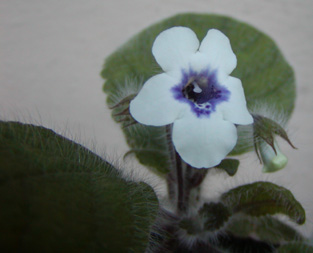
|
Sinningia 'Freckles' is
S. concinna x hirsuta,
hybridized by Carl Clayberg in the 1960s.
Since the two species are in different subgroups
(S. concinna
in the Corytholoma clade, while
S. hirsuta
belongs to the Sinningia clade),
it is not surprising that 'Freckles' is sterile.
However, a presumed tetraploid,
S. 'Hircon', was created from 'Freckles', and this plant is fertile.
Several years ago, both Dave Zaitlin and Mauro Peixoto crossed
S. hirsuta with
S. kautskyi.
After some consultation, they named the resulting hybrid
S. 'Amizade', from the Portuguese word for friendship.
Since S. hirsuta and S. kautskyi are in the same clade,
there was at least a chance that
S. 'Amizade' would be fertile.
Unfortunately, this doesn't seem to be the case.
Both Dave and Mauro report that they have been unable to self
'Amizade' or back-cross it to one of its parents.
|
|
Although it is a little surprising that crosses within a
clade will be infertile,
it is not entirely unexpected.
For example, see the
discussion of hybrid
fertility within the Sinningia clade.
See the
photo
of S. 'Amizade' on the Gesneriad Society's web site.
The plant was grown by Gary Dunlap.
|

